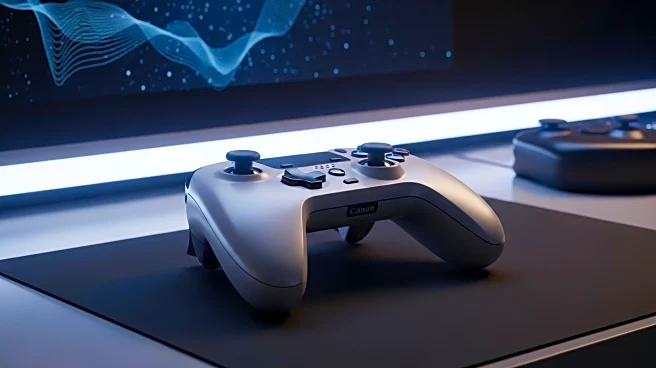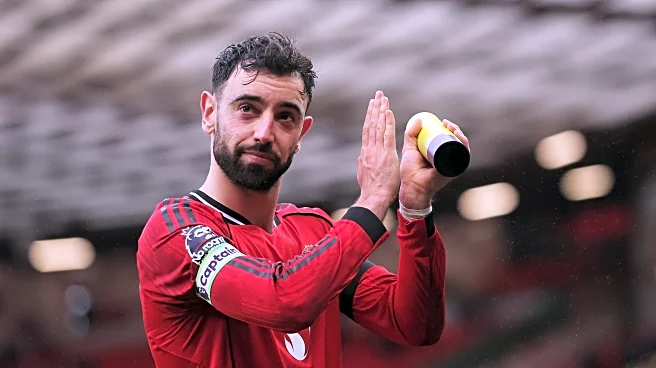What's Happening?
Battlefield Studios has made a significant decision to prioritize performance over advanced graphics in its latest release, Battlefield 6. The studio has opted to forego ray tracing, a popular graphics enhancement technology, to ensure the game runs smoothly on a wider range of hardware. This decision is part of a broader strategy to make the game accessible to more players, particularly those who may not have the latest high-end graphics cards. The recommended hardware for optimal performance is a 3060Ti, which is notably more accessible than the requirements for many other high-budget games. Technical Director Christian Buhl explained that the focus was on optimizing the game for default settings and users, rather than relying on technologies like DLSS as a crutch for performance. This approach is a departure from the series' historical emphasis on cutting-edge graphics, reflecting a shift towards inclusivity and performance.
Why It's Important?
The decision by Battlefield Studios to prioritize performance over graphics has significant implications for the gaming industry. It highlights a growing recognition that many players are unable to afford frequent hardware upgrades, and thus, games that run well on older systems are increasingly valued. This shift could influence other developers to reconsider their focus on graphics-heavy features that may alienate a portion of their audience. By making Battlefield 6 accessible to a broader range of players, the studio is likely to expand its user base and enhance player satisfaction. This move also positions Battlefield 6 as a direct competitor to Call of Duty, which is known for its performance standards. As more developers prioritize performance, the industry may see a trend towards optimizing games for a wider array of hardware, potentially leading to increased sales and player engagement.
What's Next?
As Battlefield 6 continues to gain traction, other game developers may take note of its success and consider similar strategies for their upcoming releases. The positive reception of Battlefield 6's performance-focused approach could encourage studios to invest more in optimization rather than solely in graphical enhancements. This could lead to a broader industry shift where performance becomes a key selling point, especially in the competitive FPS market. Additionally, the success of Battlefield 6 may prompt EA to continue pursuing strategies that align with player preferences for performance, potentially influencing future titles in the Battlefield series and beyond.
Beyond the Headlines
The decision to prioritize performance over graphics in Battlefield 6 also raises questions about the long-term sustainability of the gaming industry's focus on high-end graphics. As developers increasingly recognize the value of performance, there may be ethical considerations regarding accessibility and inclusivity in gaming. Ensuring that games are playable on a wide range of hardware can democratize gaming experiences, allowing more players to participate without the barrier of expensive upgrades. This shift could also influence cultural perceptions of gaming, where the emphasis on graphics is replaced by a focus on gameplay quality and user experience.












